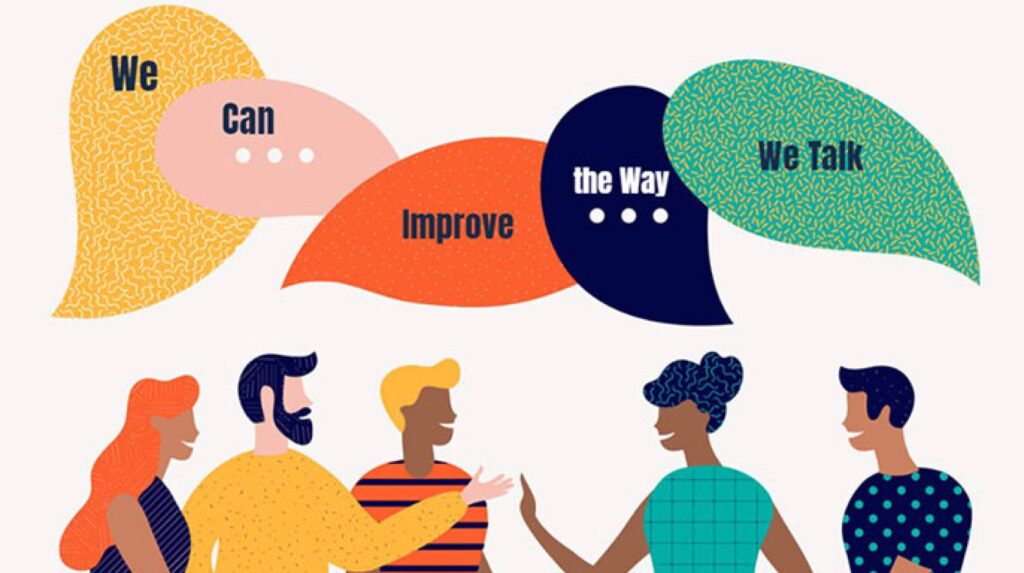
Listen, we’ve all been there where one minute we’re talking to someone, and the next minute there is just this long awkward silence where no one really knows what to say next. It’s rough, the cringe is real and maybe in that moment you feel like throwing them in a ditch or maybe you feel like throwing yourself in one. Listen, I don’t judge. The point is it isn’t a great situation to find yourself in, but a situation like that is totally preventable once you get better at the art of conversational threading.
Conversational Threading refers to the ability to branch off into different topics from what someone else says and also the ability to have threads in your conversation to allow other people to branch off from. It is an absolutely game-changing tool to have in your arsenal because it enables you to continue conversation indefinitely without feeling like either person is ‘carrying’ it. It can really help you to get into those deep conversations with people which build deeper relationships and bonding.
Here are the steps I’ve found to really get good at conversational threading cause we all do it but we’re not all great at it.
- Ask a simple question to get the conversation started. This allows for the momentum to build.
- Look for threads in people’s speech. For example, if you asked where they work and they said “I work as a barista in Starbucks”, then the threads in that sentence would be ‘barista’ and ‘Starbucks’ because you can use them to branch off into different conversations.
- Pull on those threads using a statement or open-ended question. Open-ended questions are preferable to closed-ended ones because they allow the person to provide you with more threads to work with and a greater opportunity to evoke an emotional response from the person. Example: A1) “Where do you work?” B1) “I’m a Barista at Starbucks” A2) “Wow! How does it feel to be everyone’s favourite person in the morning?” B2) “Giggle ~ I don’t know, I guess when you put it that way it’s kind of rewarding!, but I wouldn’t say I’m everyone’s favourite person!” A3) “So tell me then, who’s YOUR favourite customer?” B3) “Well, there’s always this one man who always asks for the strangest coffee combination, its basically all syrup!”.
- When they respond continue looking for threads in their speech and pulling on those threads and you’ll never run out of things to say. But if they aren’t willing to share their feelings, for example responding to an emotionally evoking question with ‘I don’t know’ or ‘I guess’, then ask them something that they have a bunch of knowledge on, e.g ‘How do you do those coffee swirls for people?’ Then they will give you a response that you can pull threads from.
- If you’ve decided that its time to cut the thread and change the topic, You can either share your experiences to add a different perspective to the conversation or continue asking questions and thread the conversation together.
- Find Common Ground and Shared Experiences to Build On. When you discover commonalities, you’ll build trust, become likable faster and establish compatibility. Discussions over shared experiences give the other person a sense of freedom that allows them (and you) to be open and honest. This is known as “bonding”, allowing you to have deeper conversations and discover more about the person you’re talking to.
- To keep the momentum of the conversation going, ask better questions or open-ended questions that are deep and meaningful. Examples of deep and meaningful questions: “What’s your family like. What’s it like to spend time with them?” “Tell me about your last relationship like?” “What was it like growing up in Dublin?”
- At some moment in the conversation, make the other person the focal point of the conversation. Make the other person at some moment of the conversation the focal point by being curious and exploring with genuine interest. When you lead with curiosity and ask thoughtful questions that allow someone to share or “have the floor”, you build a connection (that leads to trust).
Pro tips:
- The person you’re talking to will most likely ask you the same question or something similar. When they do, elaborate, and don’t be afraid to add details about yourself or share your experiences.
- The cycle of conversation threading can keep going and going if you’re actively listening and are sincerely interested in the conversation.
- Don’t try to avoid small talk. It is very important and gives us info about another person. It is also what allows to go into deeper conversations with people. It is basically a warm-up. Small and conversation threading are intertwined.
- “Don’t rush the convo or act disinterested. This will not help the other person open up to you.”
Where I got most of my info from:
I know my source is reddit, but the info that Redditor gave was incredible.
Helpful link
https://loopward.com/improve-conversation-skills-using-conversational-threads-and-sharing-experiences/#:~:text=Youcan either share your,yourself%2C or share your experiences.